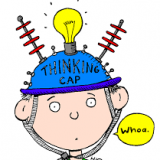Recombinant DNA Technology
What is Recombinant DNA, or rDNA ?
Recombinant DNA, or rDNA, is the term used to describe the combination of two DNA strands that are constructed artificially. Genetic scientists can do this to create unique DNA strand for different purposes, using several types of techniques.
- Like naturally occurring DNA, recombinant DNA has the ability to produce recombinant proteins.
- It is often these proteins that play the key role in the application of recombinant DNA.
How formation happens of rDNA ?
In most cases, rDNA is created in a laboratory setting using a process of molecular cloning. This method allows in vivoDNA replication, in the living cells of the subject.
- A cloning vector is a DNA molecule that replicates inside a living cell and is used to form rDNA. The cloning vector is usually a small part of a DNA strand that holds the genetic information that is needed for the replication of cells.
- Polymerase chain reaction (PCR) is another method that can be used to replicate a specific DNA sequence and create rDNA, which is used to replicate DNA in a laboratory test tube.
The standard method of making recombinant DNA involves:
- Choosing the appropriate host organism and cloning vector.
- Preparation of vector DNA and DNA to be cloned.
- Creation of recombinant DNA.
- Introduction of rDNA to host organism.
- Screening for rDNA with specific properties sought from host organisms.
Background Information on DNA :
- DNA, also known scientifically as deoxyribonucleic acid, has a double helix structure and contains a combination of the nitrogen bases: adenine, thymine, guanine and cytosine.
- Although these four bases are the same in all organisms, they can be paired together and arranged in an infinite number of ways, such that each organism has a unique combination for their DNA strands.
Benefits of rDNA Recombinant Technology :
- rDNA approach helps to reduce genetic disease in agriculture field in order to produce better crops that able to cope with drought and heat resistance due to unstable weather. Other than that, rDNA also helps in producing plants that able to generate their own insecticides and generally reduce the effects chemical pesticides that are widely used.
- In the medical field, rDNA approach helps in order to produce huge amounts of insulin, recombinant pharmaceutical product, and production of recombinant vaccines such as in the treatment of Hepatitis B.
- On the other hand, this useful and advance technology also contributes in the effort to prevent and cure of sickle cell anaemia and cystic fibrosis. Last but not least, this genetic manipulation approach also highly contributes in the gene therapy treatment.












